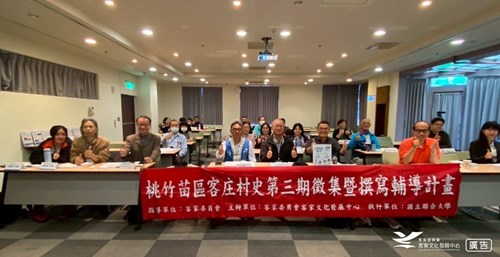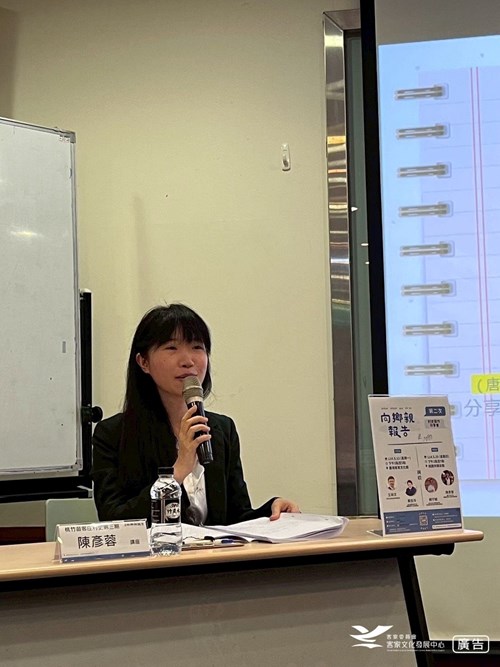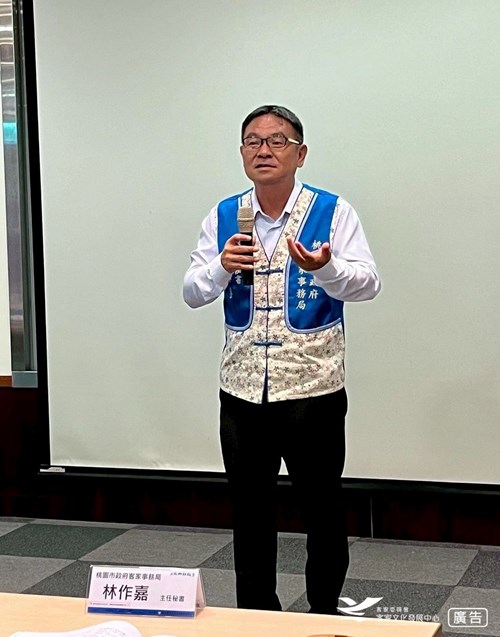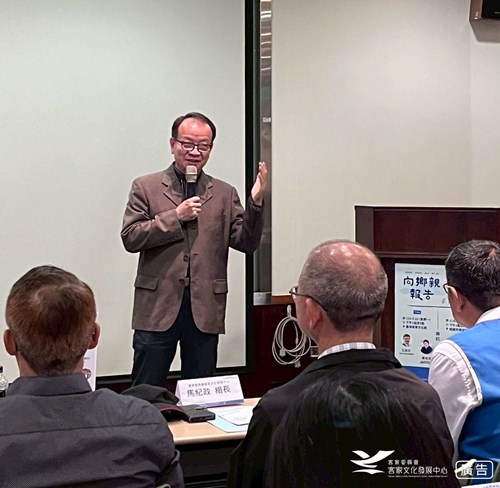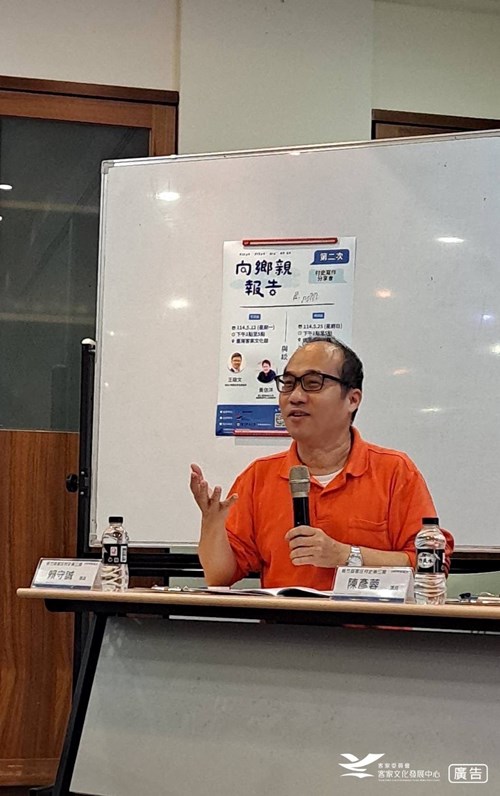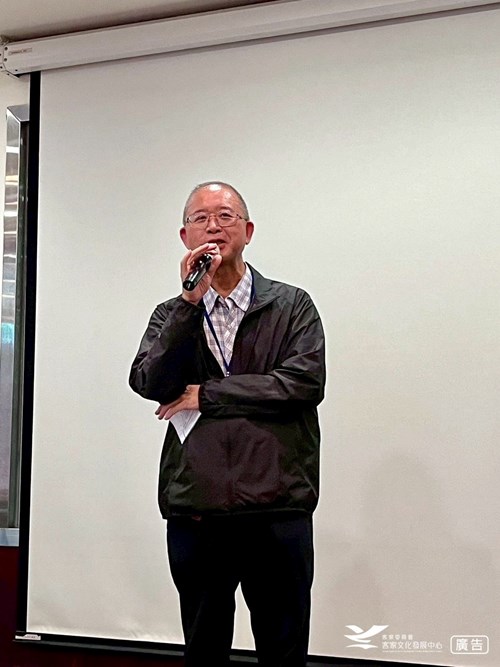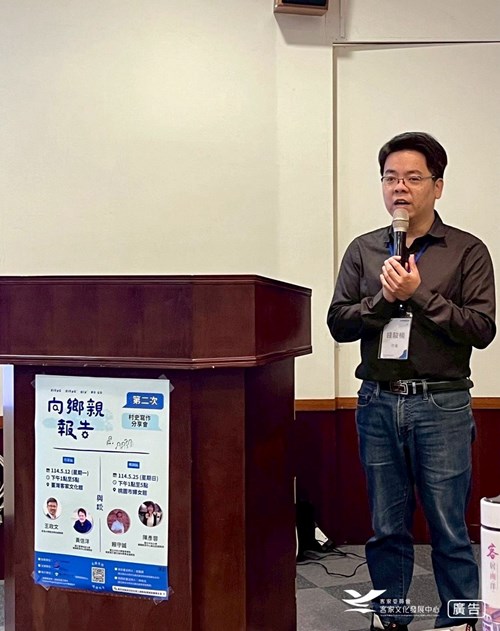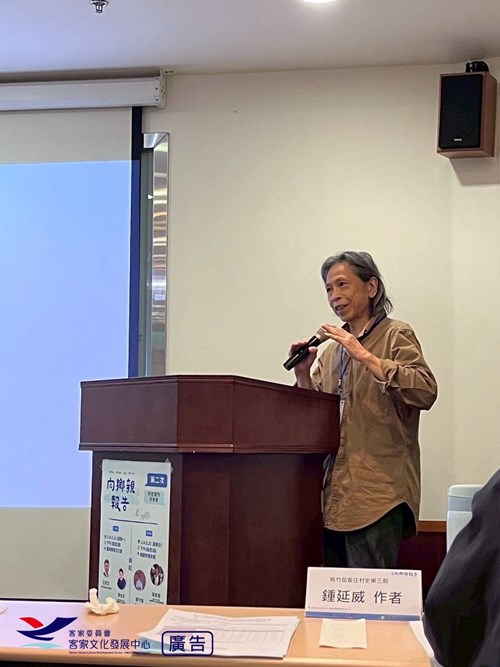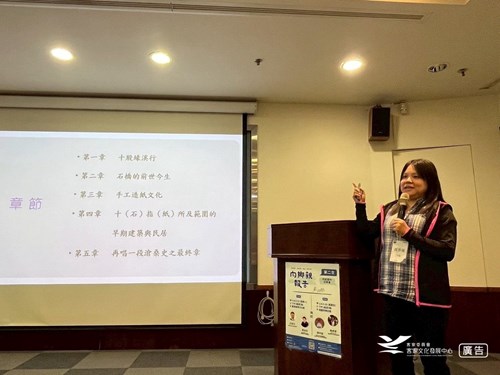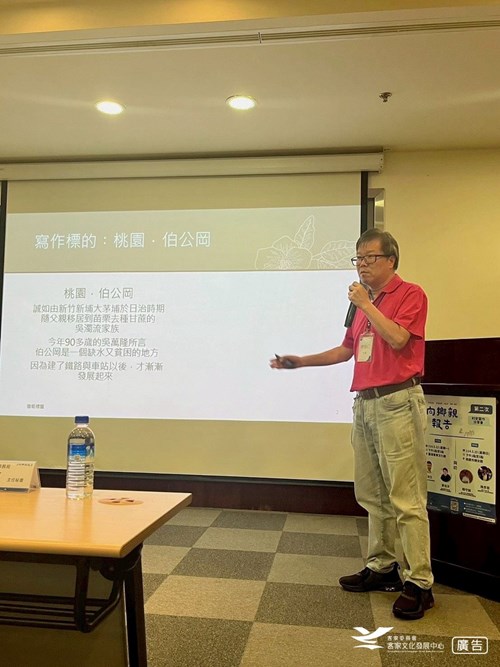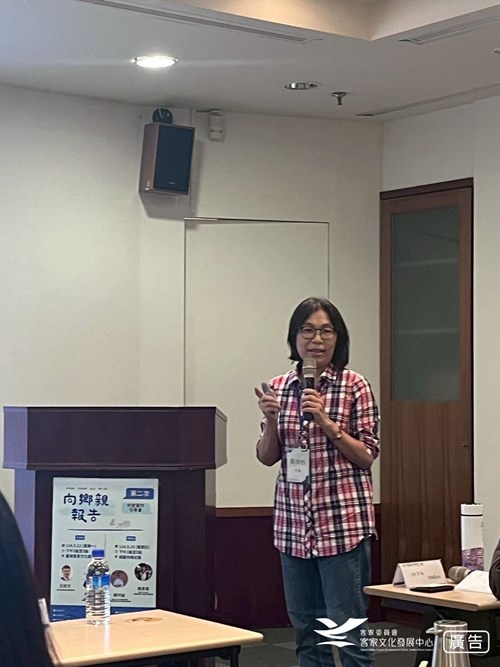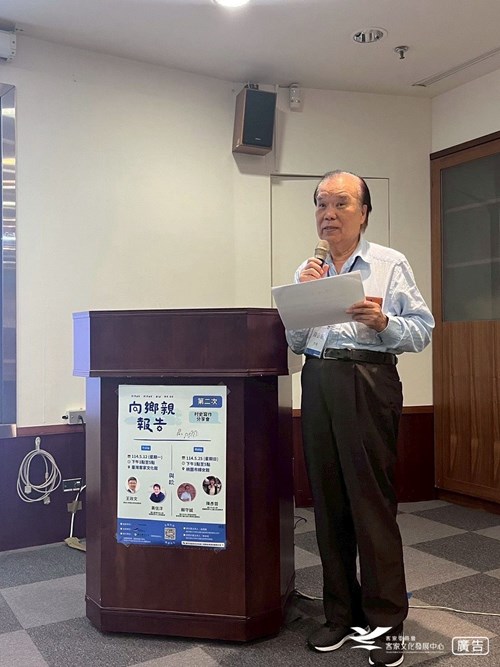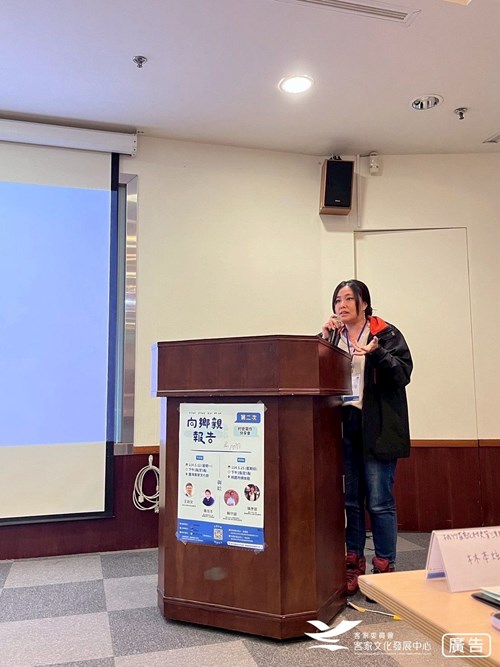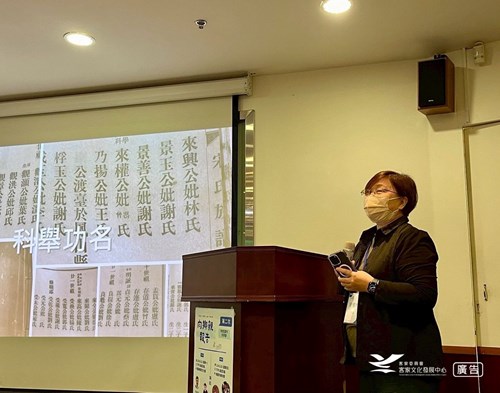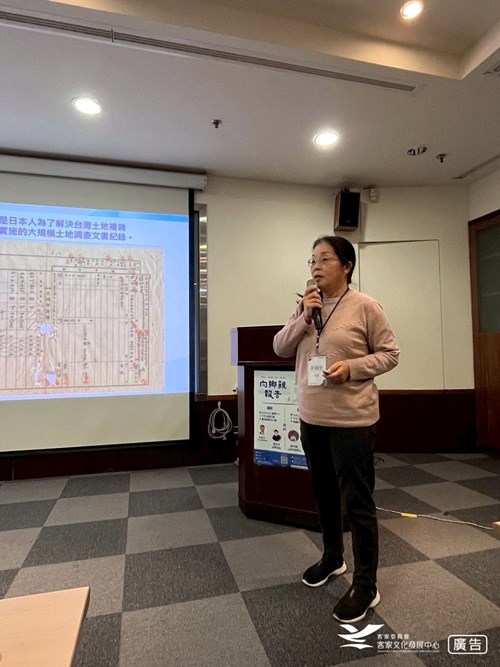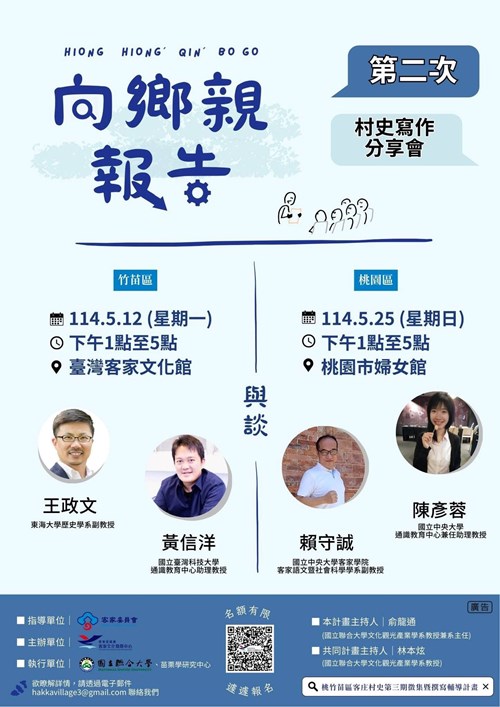
Activity Outcome
Mentorship Program for Collecting and Documenting Hakka Village Histories in Taoyuan, Hsinchu, and Miaoli (Phase III, Taoyuan Session)
- Source:客家文化發展中心
- Publication Date:2025/06/02
- Last updated:2025/07/08
- Count Views:577
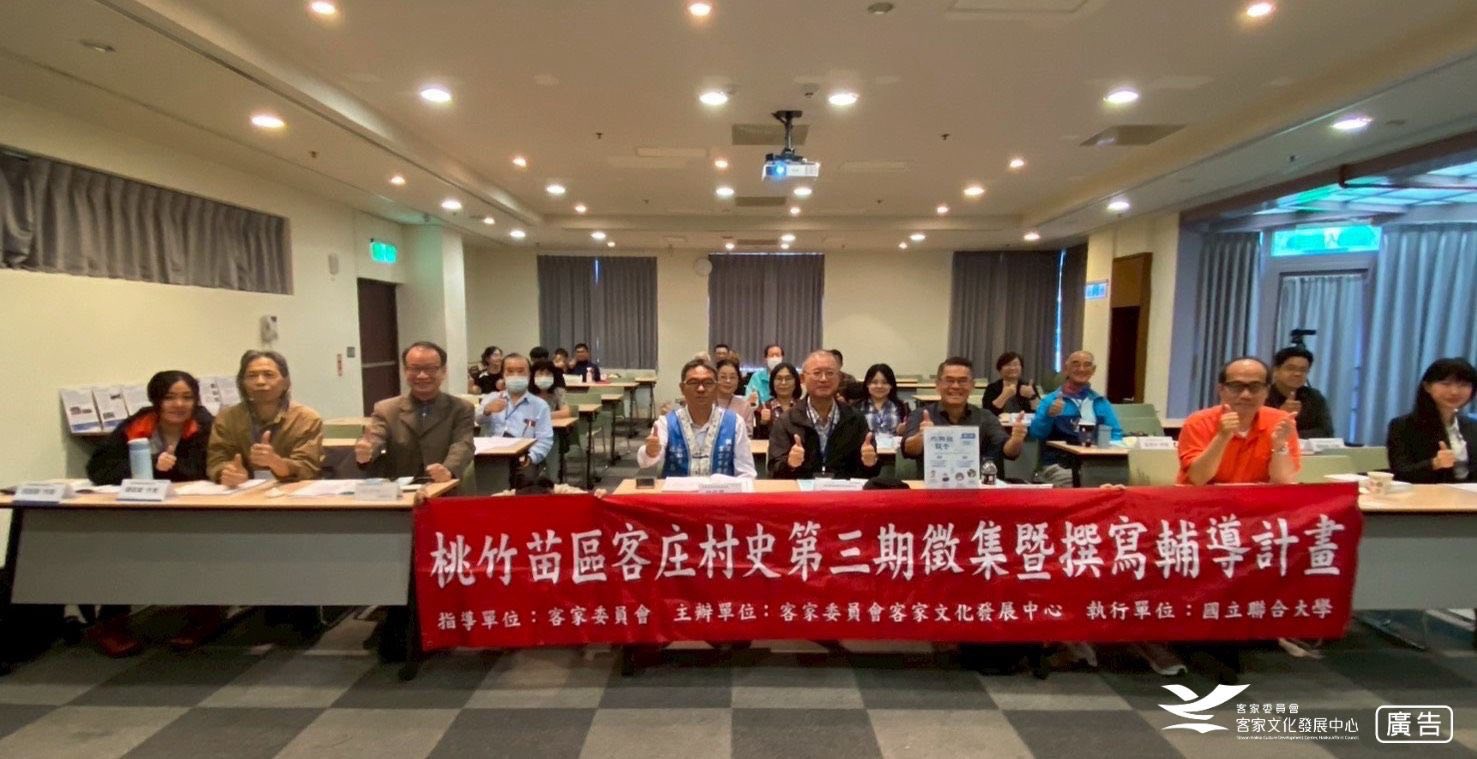
On May 25, 2025, the Hakka Culture Development Center of the Hakka Affairs Council hosted the second writing exchange session of the Third Phase of the Mentorship Program for Collecting and Documenting Hakka Village Histories in Taoyuan, Hsinchu, and Miaoli at the Center for Women of Taoyuan City. The event welcomed 8 teams comprising 11 village history authors from Longtan, Dayuan, Pingzhen, Xinwu, Guanyin, and Yangmei Districts in Taoyuan City, as well as from Sanwan Township in Miaoli County and Guanxi Township in Hsinchu County. Each author shared their journeys of field research and writing insights since the launch of the program. With around 50 participants in attendance, the session fostered a lively atmosphere and meaningful exchanges.
To broaden participants’ writing perspectives and enhance the overall quality of their work, the event invited Associate Professor Lai Shou-Cheng from the Department of Hakka Language and Social Sciences, College of Hakka Studies, National Central University, along with Adjunct Assistant Professor Chen Yen-Jung from the Center for General Education, to serve as guest commentators and speakers. Drawing on their expertise in historical research and textual composition, the two scholars provided in-depth analysis of key techniques and structural considerations in village history writing. They also offered practical, targeted advice relating to the specific challenges raised by the authors. Through the village historians’ detailed and thoughtful writing, each Hakka village emerges as a unique cultural vessel: some chronicle the hardships of pioneering and land reclamation; others trace the lineage of the righteous militia faith; still others map the rise and fall of families and communities. By interviewing elders, conducting field visits, and poring over historical documents, these authors weaved words into meaningful dialogues between people, place, and history, preserving the rich cultural memory of Hakka settlements for generations to come.
Since its launch in June 2024, the Phase III of the Mentorship Program for Collecting and Documenting Hakka Village Histories has recognized many challenges involved in the village history writing. From selecting a topic and structuring the narrative, to verifying historical facts and refining language style, each stage demands careful attention and professional guidance. To support writers through this complex process, the Center continues to host a series of Village History Writing Exchange Sessions, inviting scholars and local authors to engage in meaningful dialogue. These gatherings help authors sharpen their themes and transform personal experiences into publicly resonant, emotionally compelling narratives that reflect the heart of Hakka village life.
The writing exchange session also received strong affirmation and support from local institutions. Lin Tso-Chia, Chief Secretary of the Hakka Affairs Bureau, Taoyuan City Government, attended the event in person to offer his encouragement, urging village history authors to continue documenting their communities through writing and further deepen the cultural foundations of Hakka settlements. More than just a platform for technical support, the session served as a meaningful gathering for cultural awareness and emotional connection. Through mutual sharing, dialogue, and constructive feedback, the village history manuscripts were enriched with greater depth and warmth. It is hoped that this momentum will successfully enable authors to complete the writing and leave behind enduring historical records honoring the legacy of their hometowns.
